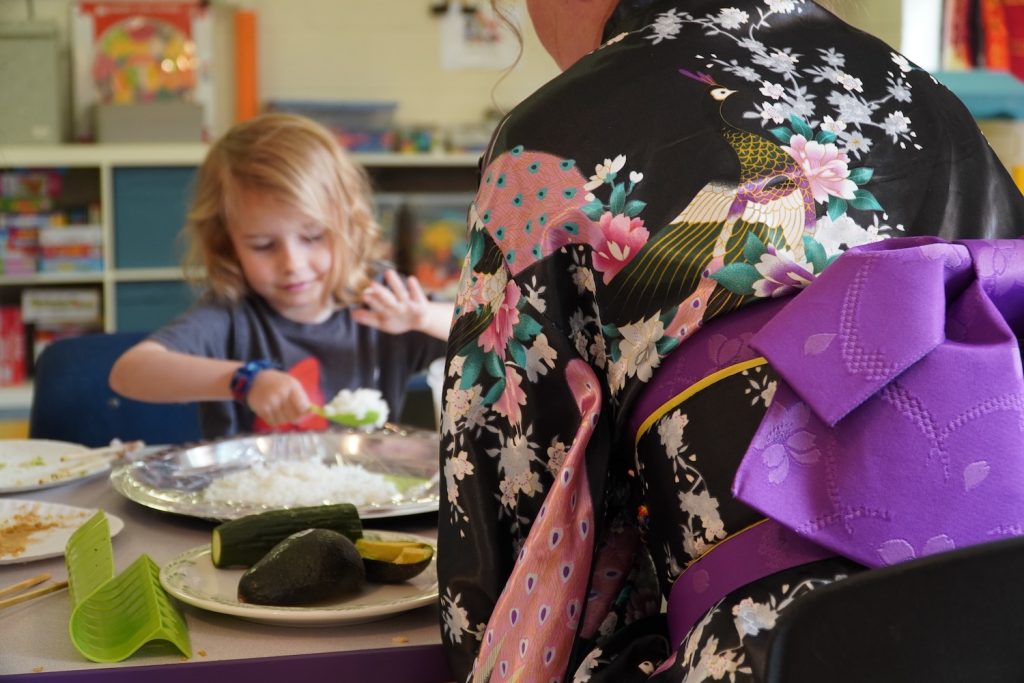Exposing young children to foreign languages and cultures has numerous benefits that can positively impact their cognitive, social, and cultural development.
At Morning Explorers, we create unique cultural immersion experiences throughout the year for our students. From dropping into Asia for some savory food, to Running of Bulls in Pamplona and on to the love and generosity of Uganda, we give our curious minds an in-depth look into wonderfully different experiences.
Learn more about Morning Explorers Preschool and our focus on cultural experiences.

2024-2025 Preschool Enrollment Now Open
Morning Explorers Preschool is located in the beautiful town of Black Mountain, North Carolina, serving families from area communities such as Swanannoa, Fairview, Old Fort, East Asheville, Montreat and beyond.
The importance of exposing young children to foreign languages and cultures cannot be overstated. From cognitive benefits to enhanced cultural awareness, here are some of the key advantages of introducing children to languages and cultures beyond their own:
- Cognitive Development: Learning a foreign language from a young age has been shown to enhance cognitive development. It stimulates areas of the brain associated with problem-solving, critical thinking, and multitasking. Children who are exposed to multiple languages also tend to have better memory retention and improved language skills in their native language.
- Cultural Awareness and Sensitivity: Exposing children to different cultures helps foster cultural awareness, sensitivity, and respect. They learn to appreciate the diversity of cultures and understand that there are many ways of life, and traditions beyond their own.
- Enhanced Communication Skills: Learning a foreign language improves children’s communication skills, including listening, speaking, reading, and writing. It expands their vocabulary, encourages them to express themselves more confidently, and enables them to communicate with people from different backgrounds. These communication skills are valuable assets in both personal and professional contexts.
- Improved Problem-Solving Abilities: Exposure to foreign languages and cultures can enhance children’s problem-solving abilities. When navigating language barriers or cultural differences, they develop creative ways to communicate and solve challenges. This adaptability and flexibility are important life skills that contribute to resilience and success in diverse environments.
- Expanded Opportunities: Proficiency in multiple languages opens up a world of opportunities for children in terms of education, career prospects, and cultural experiences. They may have access to international programs, scholarships, and job opportunities that require language proficiency. Additionally, bilingual or multilingual individuals often have a competitive edge in the global job market.
- Brain Development and Plasticity: Research suggests that learning languages at a young age can promote brain development and plasticity. The brain’s ability to adapt and learn new information is enhanced when exposed to different linguistic and cognitive challenges. This can have long-lasting cognitive benefits and may even delay age-related cognitive decline later in life.
- Cultural Enrichment and Appreciation: Exposure to foreign languages and cultures enriches children’s lives by broadening their perspectives and increasing their cultural knowledge. They develop a sense of curiosity and appreciation for the world’s diversity, leading to a more open-minded and empathetic outlook.
In conclusion, exposing young children to foreign languages and cultures offers a wide range of benefits, including cognitive development, cultural awareness, enhanced communication skills, problem-solving abilities, expanded opportunities, brain plasticity, and cultural enrichment. By embracing linguistic and cultural diversity from an early age, we give children confidence to engage with others and equipped them to thrive regardless of their surroundings.
